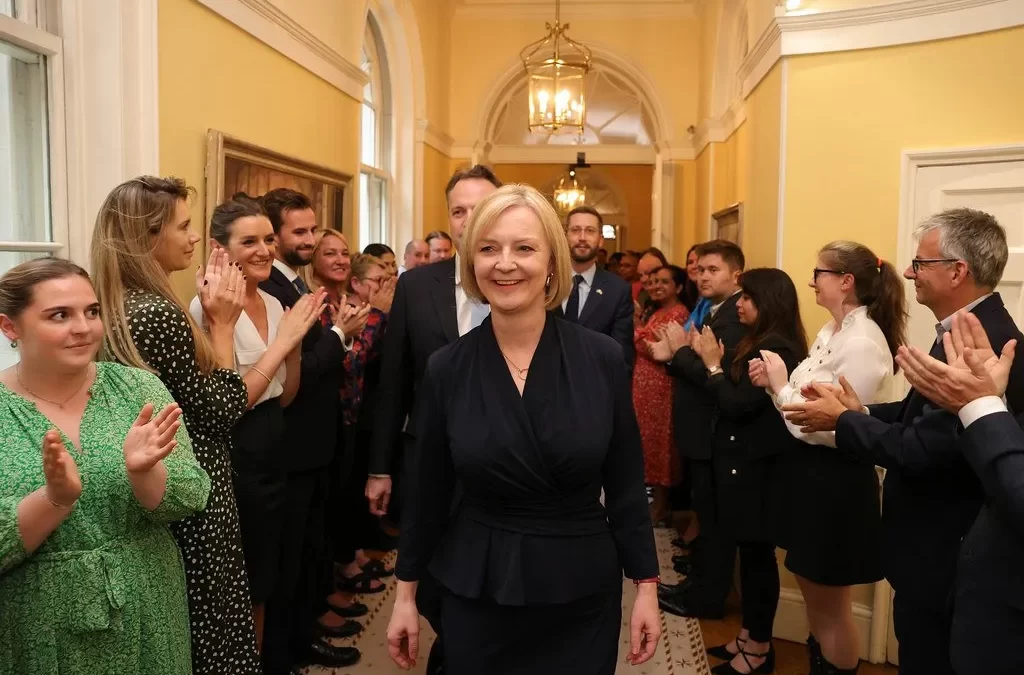
The EU’s Youth Mobility Proposal
Our leaders may have been too hasty in rejecting the EU’s proposed youth mobility scheme so soon – it offered mobility, not freedom of movement.
On Thursday 18 April, the European Commission proposed a new scheme allowing improved mobility for young people between the EU and the UK. Within 48 hours, the UK government had already rejected the proposal saying there was no interest from the UK side. The British public, and Britain’s youth in particular, may beg to differ.
https://twitter.com/EU_Commission/status/1780901597649707162
The youth mobility proposal
In their recent press release, the commission outlined plans to “rebuild bridges between young Europeans on both sides of the Channel”. The proposal – which still needs approval by the EU Council – aims to offer visa-free exchanges for young people. The first of these council discussions – expected to result in a “qualified majority in favour” from member states – takes place on Friday 26 April.
According to the commission, post-Brexit immigration rules have resulted in “decreased numbers of persons exercising mobility between the EU and the UK”. Young people have been “particularly affected” by the removal of the benefits of “youth, cultural, educational, research and training exchanges”.
The objective of the proposed scheme is to “facilitate youth exchanges, making it easier for young EU citizens to study, work and live in the UK, with reciprocity for young UK nationals in a member state”. The commission also hopes the scheme “could be usefully supported by a parallel discussion” on Erasmus+, the EU’s student exchange programme.
The scheme would be available to 18–30-year-old EU and UK citizens and would offer the opportunity to work, study and live in the UK and EU respectively for up to four years. Those wishing to participate would need to meet certain conditions in order to qualify (age, length of stay, conditions of eligibility, etc) – that’s assuming, of course that future negotiations with the UK prove successful.
The scheme is likely to have been welcomed by industries suffering severe staff shortages since Brexit. UK Hospitality, who have been calling for the expansion of youth mobility schemes said the agreement would be a “huge success”, to the benefit of hospitality, tourism, live music and events.
Lord Kinnoull, chair of the House of Lords European Affairs Committee, which proposed such a scheme, welcomed the proposal as “greatly to the mutual benefit of both parties and to the youth of Europe” – an opinion shared by very few in Westminster.
1/ Brexit law- proposal to negotiate a youth mobility treaty between the EU and the UK
Press release – note basic rule would be a 4-year stay for 18-30 year olds who meet the conditions https://t.co/Z5xr2sUj4q
But wait, there's more pic.twitter.com/TfKuozRxrB
— Steve Peers (@StevePeers) April 18, 2024
Mobility is not freedom of movement
Despite what many press headlines are suggesting, the EU is not advocating a return of freedom of movement with the EU/UK, even for the young. While the proposal would certainly enable young people to have improved mobility, there are limitations. For EU citizens, who only lost freedom of movement in the UK thanks to Brexit, the scheme represents an important step forward.
However, the benefits of the scheme for young Britons would be limited to one designated country, despite them having lost their mobility in 27 EU countries, as a result of Brexit. So, while British participants would have more freedoms than at present, those freedoms would not allow movement between EU countries. They would, though, still allow for Britain’s youth to work, study, live in Spain or France, Cyprus or Italy, or any other EU country.
The other major difference, of course – and one that some commentators are describing as ageist – is that anyone over 30 would be excluded.
UK government reject the proposal
With the exception of a few Brextremists – for whom closer EU ties of any kind are regarded as a betrayal of Brexit – the UK government was initially said to be “open” to discussing a deal with the EU. That supposed openness didn’t last very long.
Just two days after the proposal was announced, Rishi Sunak rejected the proposal outright. A government spokesperson stated, “we are not introducing an EU-wide youth mobility scheme – free movement within the EU was ended and there are no plans to introduce it”. The main objection seems to be against an EU-wide approach – the government preferring to make bespoke deals with individual EU countries of their choice. It would seem that the Brexiter appetite for ‘cherry-picking’ has not gone away.
It would also appear that the government is willing to ignore the wishes of Britain’s youth, or maybe they’ve already given up any hope of appealing to anyone under 30. A recent survey by J.L. Partners showed that “the age at which Britons are more likely to choose the Tories over Labour opposition has risen to 70 from 39”. This latest government decision seems unlikely to change any young minds about which party best represents, or doesn’t, their own needs and wants.
https://twitter.com/pmdfoster/status/1781090554111053893
Labouring the point
Anyone expecting a more positive response from the likely next government, will have been disappointed by Labour’s reaction. Initially, Labour were said to have “no plans” to negotiate such a mobility deal, citing the fact that, in their eyes at least, the deal “was synonymous with freedom of movement”.
Just 24 hours later, Labour said they would “seek to improve the UK’s working relationship with the EU within our red lines – no return to the single market, customs union or free movement”. A spokesperson also noted that the scheme had only come about because the UK government had been reportedly approaching individual EU member states.
Despite the vast majority of the British public being desperate to see the back of the Tories, many are becoming increasingly frustrated with Labour’s stance on important issues, especially Brexit. While we may understand Labour’s need to make the Tories own Brexit, we also appreciate the importance of focusing on winning the election. Us pro-Europeans may be willing to bite the bullet in order to ‘get the Tories out’, but only up to a point.
What many of us fail to comprehend is Labour’s insistence that “Brexit is settled” and/or can be made to work. As for the party’s red lines, not only are they totally unnecessary, but they are also widely unpopular with the public, and risk turning supporters away. We can only hope that, once in power, Labour will be willing to reconsider their Brexit position, when the realities of running a failing economy present themselves.
Support from the EU
One thing we can be sure of is fair treatment, bold thinking and a willingness to provide help and support from the European Union. This latest scheme, for all its imperfections, is proof that we are better represented by our colleagues in Brussels than we are by those in Westminster. And we’re not even EU citizens anymore.
The EU has once again demonstrated a willingness to look out for the mobility, health, wealth and safety of British citizens, when others tasked with those responsibilities have shirked them. Is it any wonder then that we still look to Brussels and dream of getting back all that we have lost?
Whether the current government, or the next one, like it or not, a youth mobility scheme would be another small step towards closer ties with the EU. Small steps add up. Eventually they will become strides.
Sue Wilson MBE












